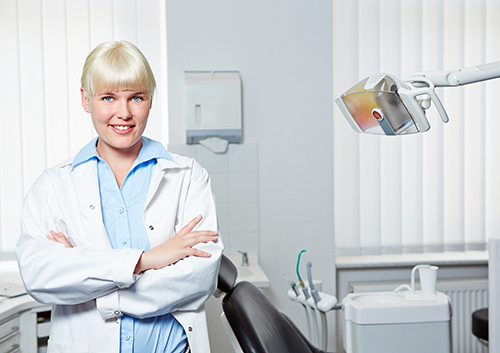What Does an Oral Surgeon Do?
November 15th, 2023

Your visit your medical doctor and dentist for your regular health care needs, you see your orthodontist to treat problems with your bite and alignment, and your periodontist looks after your gum health. If one of your medical or dental professionals recommends that you receive treatment from an oral surgeon, you probably have some questions. First of all, why recommend an oral surgeon?
Oral and maxillofacial surgeons are specialists. They have a minimum of four years of surgical education and training in a hospital-based residency program. They train with medical residents, and focus on studies in general surgery, anesthesiology, internal medicine, plastic surgery, otolaryngology (the study of the ear, nose, and throat), among other fields of specialty.
Because oral and maxillofacial education is centered on the face, mouth, and jaw, these surgeons are experts in diagnosing complex medical conditions in these structures and treating them. Your doctor or dentist might recommend an oral surgeon if you require medical or dental care in any of the following fields:
- Anesthesia
Oral surgeons are trained in the administration of local anesthesia, sedation, and general anesthesia.
- Craniofacial Surgery
Oral surgeons work, often as part of a team of specialists, to treat congenital conditions such as cleft lips, cleft palates, and cranial anomalies.
- Facial Cosmetic Surgery
Training in the surgical treatment of the muscles, skin, and bones of the face makes oral surgeons especially qualified to perform cosmetic procedures which enhance aesthetic appearance and improve function. Ask your oral surgeon about procedures such as chin surgery, cheekbone implants, ear surgery, skin treatments, and other cosmetic surgery options.
- Facial Injuries and Traumas
Oral surgeons are skilled in repairing complex fractures of the upper and lower jaws as well as treating other facial injuries.
- Jaw and Temporomandibular Joint (TMJ) Surgery
If you have difficulty biting or swallowing, TMJ pain, sleep apnea, a protruding or receding jaw, or other jaw complications, corrective surgery can restore better, healthier function to your jaw or temporomandibular joint.
- Oral Cancer Diagnosis and Treatment
Early diagnosis and treatment are critical for recovery, so see your oral surgeon immediately if you or your dentist detect any of the warning signs of oral cancer.
- Oral Surgeries
Oral surgeons also perform extractions; dental implant surgery; procedures to save a damaged tooth such as apicoectomies, hemisections, and root resections; procedures to treat soft tissue, including frenectomies, soft tissue grafts, and crown lengthening; and surgeries which treat sleep apnea.
Oral surgeons like Doctors Bauer, Lawrenz, and Stark are experts in preserving and restoring the health, the function, and the appearance of your face, mouth, and jaw. If your doctor or dentist recommends that you visit our Champlin, MN office, rest assured that you will be treated by a specialist who is exceptionally qualified to diagnose and treat you.




 Website Powered by Sesame 24-7™
Website Powered by Sesame 24-7™